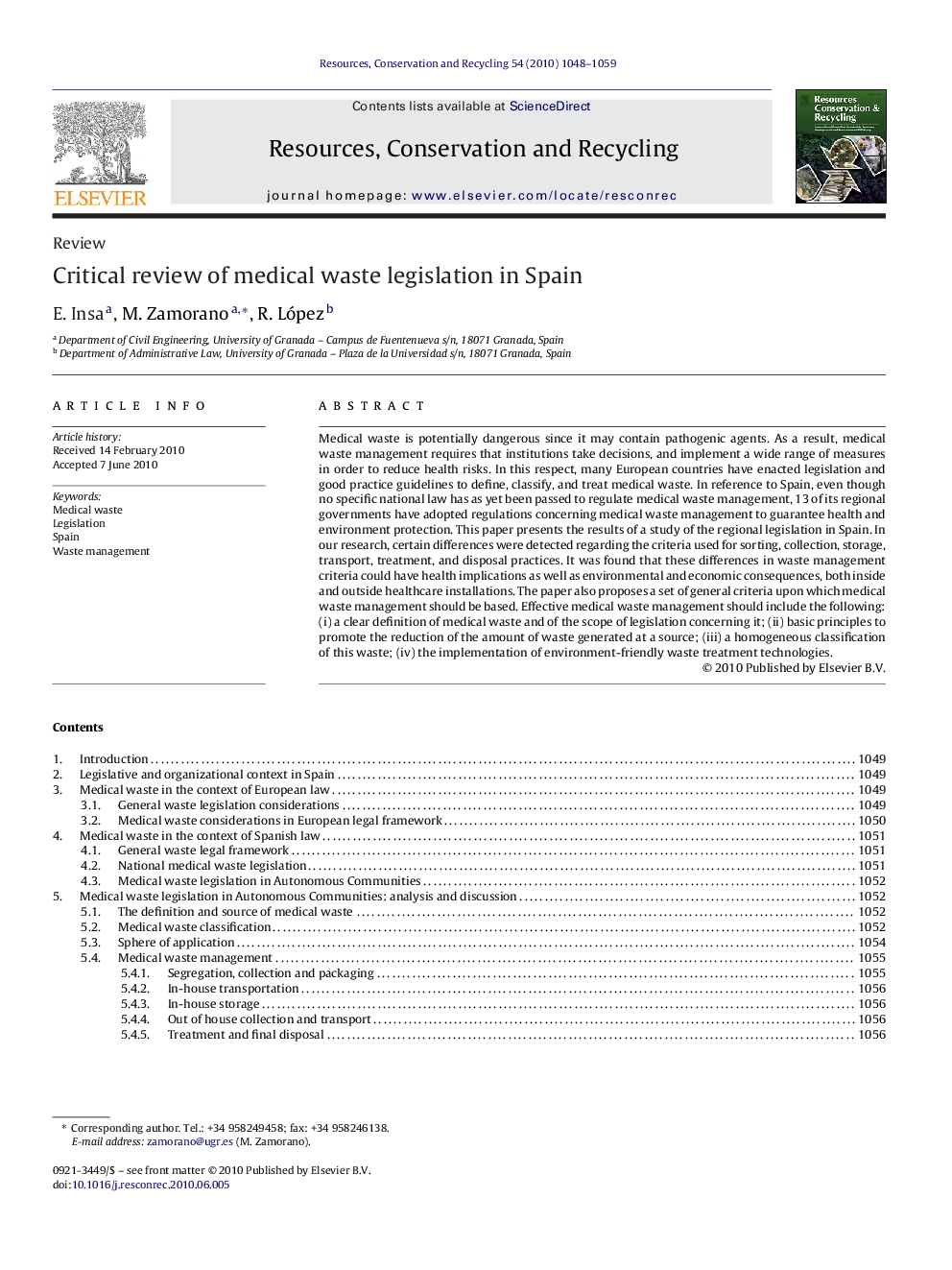| Article ID | Journal | Published Year | Pages | File Type |
|---|---|---|---|---|
| 1063790 | Resources, Conservation and Recycling | 2010 | 12 Pages |
Medical waste is potentially dangerous since it may contain pathogenic agents. As a result, medical waste management requires that institutions take decisions, and implement a wide range of measures in order to reduce health risks. In this respect, many European countries have enacted legislation and good practice guidelines to define, classify, and treat medical waste. In reference to Spain, even though no specific national law has as yet been passed to regulate medical waste management, 13 of its regional governments have adopted regulations concerning medical waste management to guarantee health and environment protection. This paper presents the results of a study of the regional legislation in Spain. In our research, certain differences were detected regarding the criteria used for sorting, collection, storage, transport, treatment, and disposal practices. It was found that these differences in waste management criteria could have health implications as well as environmental and economic consequences, both inside and outside healthcare installations. The paper also proposes a set of general criteria upon which medical waste management should be based. Effective medical waste management should include the following: (i) a clear definition of medical waste and of the scope of legislation concerning it; (ii) basic principles to promote the reduction of the amount of waste generated at a source; (iii) a homogeneous classification of this waste; (iv) the implementation of environment-friendly waste treatment technologies.
